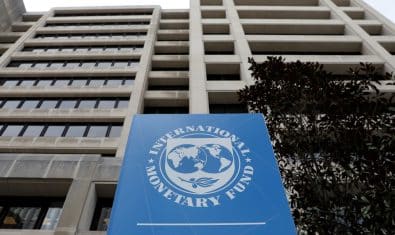Pakistan is among the most vulnerable countries to default as the surge in global interest rates and inflation takes its toll on developing nations.
According to Bloomberg research, the South Asian nation’s bond yielding recently touched 40 percent which means the bond is riskier than before and is trading at distressing levels globally.
Pakistan has recently begun discussions with the International Monetary Fund (IMF) as it runs out of money for at least $41 billion in debt obligations and imports cover for the current fiscal year. While the finance minister claimed that the country had avoided default, its debt is trading at distressed levels.
Bond spreads are a key source of worry for central banks that are confronted with an increasingly stark choice between raising interest rates to safeguard currencies and dampen inflation against remaining indulgent to help keep post-Covid recoveries on track.
Multilateral agencies such as the IMF have warned of more on-the-ground conflict as a result of the burden of rising living costs, particularly if governments are ill-equipped to provide a cushion for people.
The number of developing markets with debt coupons that trade at distressed levels — yields more than 10 percentage points higher than similar bonds, indicating investors believe default is a real possibility — has more than doubled in the last six months. These 19 countries are home to more than 900 million people, and several, like Sri Lanka and Lebanon, are already in default.
According to Bloomberg, the focus has shifted to El Salvador, Ghana, Egypt, Tunisia, and Pakistan — countries that are most likely to default.
And, as recent crises have demonstrated, the financial collapse of one nation may cause a domino effect when fearful traders withdraw money from countries with comparable economic issues, thus hastening their demise.
But there’s some good news for Pakistan as the IMF announced a long-awaited staff-level agreement on July 13, however, the statement was accompanied by sober warnings of considerable challenges ahead. Most crucially, Pakistan’s expected external funding needs for FY23 were $35 billion.
The lender said, “In order to support program implementation and meet the higher financing needs in FY23, as well as catalyze additional financing, the IMF Board will consider an extension of the EFF until end-June 2023 and an augmentation of access by SDR 720 million that will bring the total access under the EFF to about $7 billion”.
With regards to why Pakistan is in need of a bailout, the IMF statement read, “Pakistan is at a challenging economic juncture. A difficult external environment combined with procyclical domestic policies fueled domestic demand to unsustainable levels. The resultant economic overheating led to large fiscal and external deficits in FY22, contributed to rising inflation, and eroded reserve buffers”.
Going forward, the immediate priority for Pakistan is to stabilize the economy through the steadfast implementation of the recently approved budget for FY23, continued adherence to a market-determined exchange rate, and a proactive and prudent monetary policy, says the agency’s statement.
While Pakistan faces the prospect of default for the second time in its history, the IMF says it is important to expand social safety to protect the most vulnerable and accelerate structural reforms including improving the performance of state-owned enterprises (SOEs) and governance.
























So hoarding of essential items and selling it for exorbitant prices when we default is a sure shot way to become rich (hint petrol and diesel)